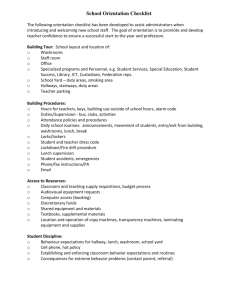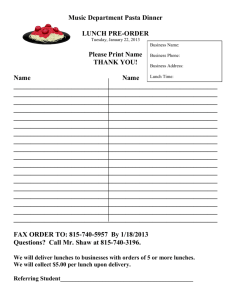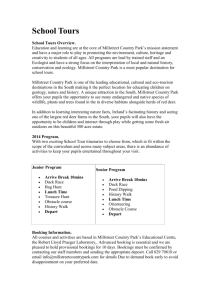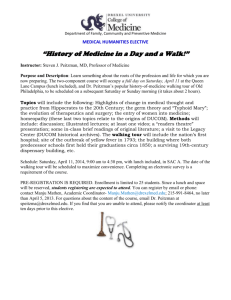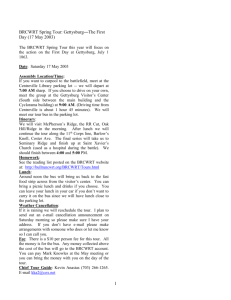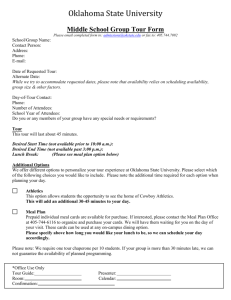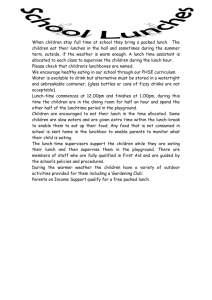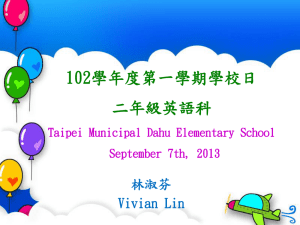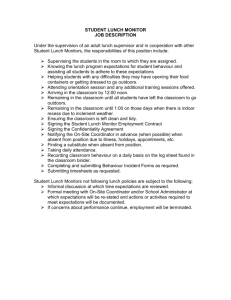Orientation for New Teachers - Cobb County School District
advertisement
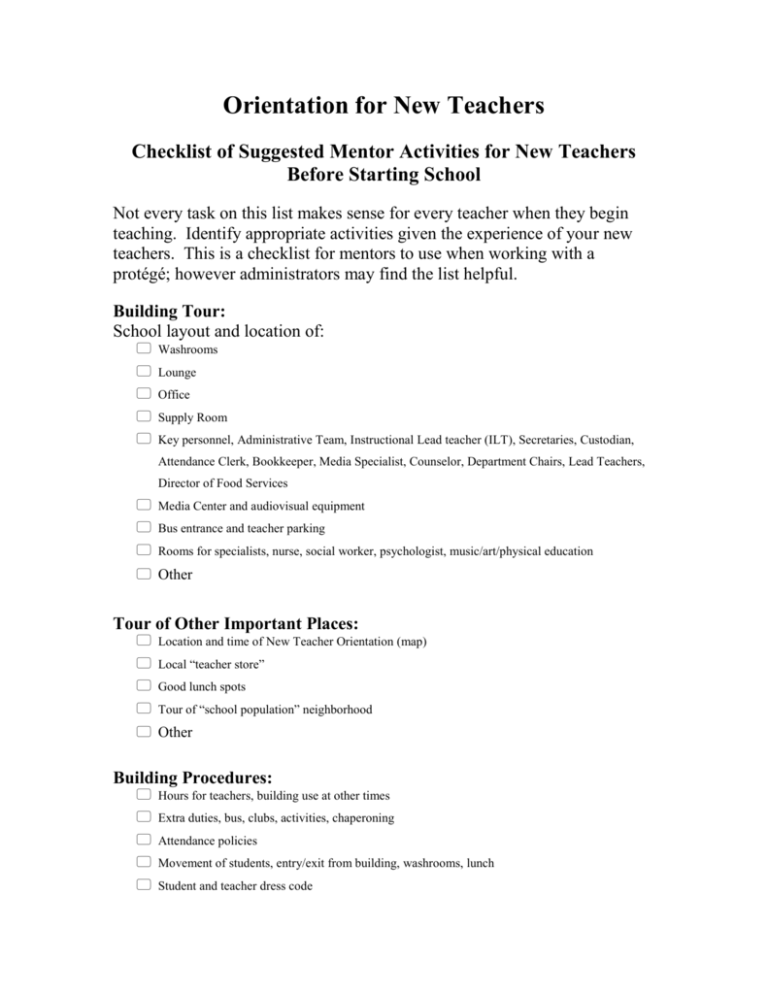
Orientation for New Teachers Checklist of Suggested Mentor Activities for New Teachers Before Starting School Not every task on this list makes sense for every teacher when they begin teaching. Identify appropriate activities given the experience of your new teachers. This is a checklist for mentors to use when working with a protégé; however administrators may find the list helpful. Building Tour: School layout and location of: Washrooms Lounge Office Supply Room Key personnel, Administrative Team, Instructional Lead teacher (ILT), Secretaries, Custodian, Attendance Clerk, Bookkeeper, Media Specialist, Counselor, Department Chairs, Lead Teachers, Director of Food Services Media Center and audiovisual equipment Bus entrance and teacher parking Rooms for specialists, nurse, social worker, psychologist, music/art/physical education Other Tour of Other Important Places: Location and time of New Teacher Orientation (map) Local “teacher store” Good lunch spots Tour of “school population” neighborhood Other Building Procedures: Hours for teachers, building use at other times Extra duties, bus, clubs, activities, chaperoning Attendance policies Movement of students, entry/exit from building, washrooms, lunch Student and teacher dress code Emergency Plans/Fire/Disaster drills Lunch supervision, eating arrangements Homework, testing policies Student accidents, emergencies Pullout programs and need for flexibility Set-up email accounts Electronic grade book Other Access to Resources: Classroom and teaching supply requisitions, budget process Audiovisual equipment requests Computer access for teacher use and for student use Discretionary funds (saving receipts) Shared equipment and materials Textbooks, supplemental materials Location and operation of copy machines, transparency machines, laminating equipment and supplies Other Student Discipline: Behavior expectations for hallway, lunch, washroom, playground Establishing and enforcing classroom behavior expectations and routines What works for me with our children Consequences for extreme behavior problems (contact parent, referral) Expected staff supervision outside of classroom Referral process for students with special needs (gifted, special education) Other Curriculum: Guides/manuals District curriculum development process and resulting expectations for teachers Central office staff in curriculum and staff development Management of the curriculum demands and pacing of learning Introduction to texts and available supplemental materials Lesson plan procedures and expectations Classroom assessment system, rubrics, and tests as feedback for instruction Subject matter experts on the building staff Teaching teams or shared responsibilities Grading procedures for day-to-day records (report cards later) Opening day schedule, appropriate plans, administrative details A plan for the first week’s lessons (allow for organizing and behavioral teaching) Curriculum mapping (scope and sequence) Other Accountability for Student Learning: District strategic planning process and objectives, and implications for teaching School improvement planning process, implications of the plan for grade/department level decisions, and individual teaching practices Student learning standards and district curriculum goals and expectations for teaching State assessment schedules and process and preparation approach (overview only) District assessment system, rubrics, standardized test schedules Other Organizing the Classroom: Options for room arrangement and its effect on teaching and learning Traffic patterns Student work collection and distribution system Storage and access to materials Student access to texts, equipment, and teaching centers Other Personal and Professional Decisions and Procedures: Calling in sick and personal or professional days Expectations for sharing with colleagues; what others can do for you Adjustment to a new job Performance review (evaluation) Professional portfolios Other Mentoring Guidebook, Kay Burke, 2002
